Law and Order
Tether Won’t Try to Make USDT Comply With US Laws, ‘Needs’ New Stablecoin: CEO
Published
6 days agoon
By
admin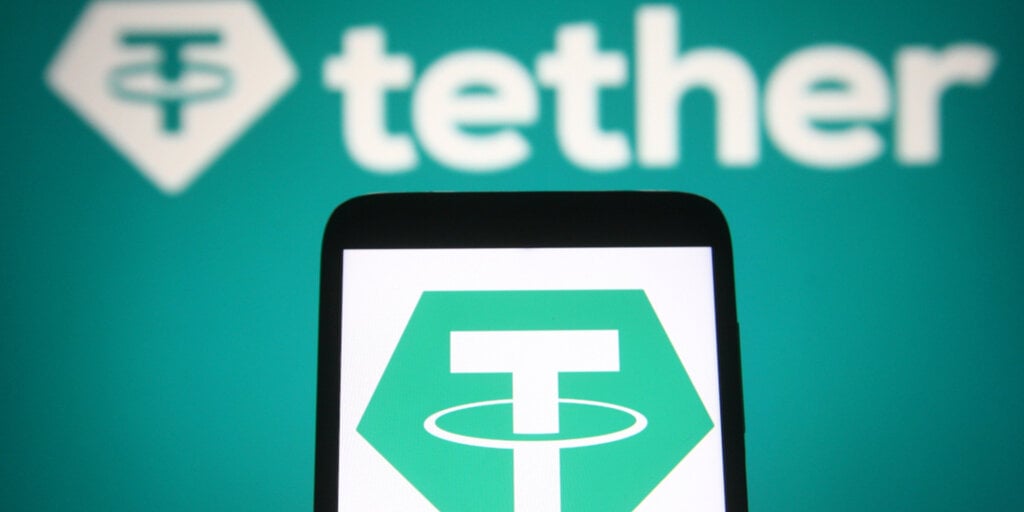
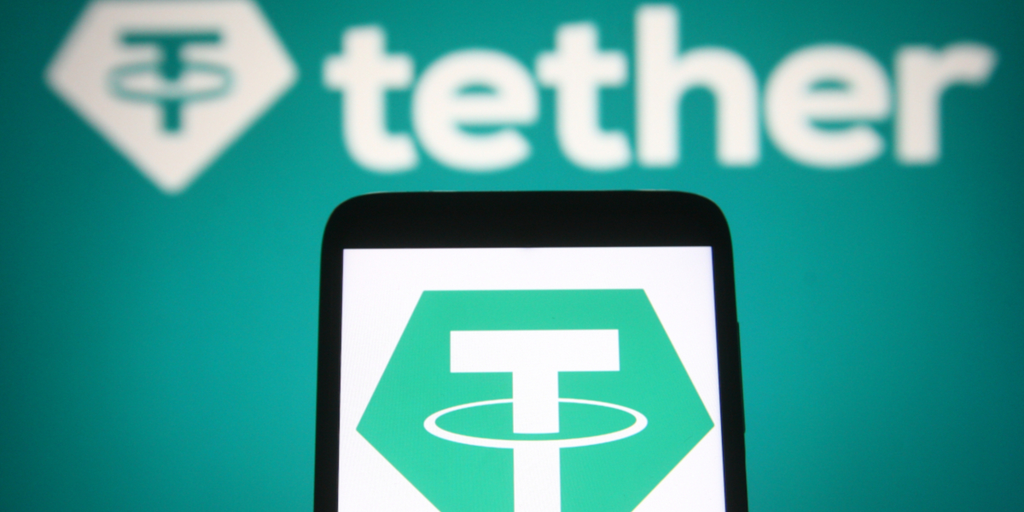
With all the talk about how stablecoin legislation in the United States may or may not negatively impact foreign issuers, you might expect the biggest (and most controversial) issuer on the planet to be feeling the heat. But that’s far from the case, according to Tether CEO Paolo Ardoino.
In fact, Tether has no real issue with its flagship stablecoin, USDT, being banned in the United States by new regulatory legislation, Ardoino told Decrypt on Friday.
To circumvent the potential issue, Tether is actively considering creating a new U.S.-domiciled stablecoin that will comply with pending American stablecoin laws, Ardoino said.
“We believe that our main stablecoin is perfected for emerging markets, but we can craft a payment stablecoin that works for the U.S.,” Ardoino said. “We need to have two products with two different value propositions.”
Stablecoins are digital assets that are typically pegged to the U.S. dollar, designed to hold a steady value, and allow for cryptocurrency traders to enter and exit positions without accessing dollars directly. They are far and away the most traded digital assets in the market, accounting for tens of billions of dollars in volume every day.
As parallel stablecoin bills race through the House and Senate to floor votes, questions have abounded over the fate of Tether, by far the market’s largest player.
As currently written, both the House’s STABLE Act and the Senate’s GENIUS Act would require foreign stablecoin issuers like Tether—which is headquartered in El Salvador—to comply with the stringent anti-money laundering requirements of the Bank Secrecy Act, and vigorous audits of their reserves.
Tether, the $144 billion stablecoin behemoth, has never submitted to a full financial audit, and critics and competitors have argued the company would exit the U.S. altogether if it had to comply with intricate anti-terrorism and anti-money laundering rules. Critics have, for years, also doubted whether Tether actually has the money it says it does to back each USDT token—a criticism the company has vigorously combatted over and over again.
Ardoino maintains that Tether has “the highest level of compliance” among its competitors when it comes to cooperation with law enforcement. He added the company is currently in conversations with multiple “Big Four” accounting firms about a full audit, but that the firms have so far been “rightfully” cautious about engaging with the novel stablecoin market.
And those theories that Tether would stay out of the U.S. because of new stablecoin laws? Ardoino says they reek with “the smell of desperation” of Tether’s competitors, who “were betting everything” that the company wouldn’t come play ball in the United States.
“Here I am,” Ardoino said Friday from the Manhattan offices of Cantor Fitzgerald. The Wall Street firm, run by U.S. Commerce Secretary Howard Lutnick and his family, custodies much of Tether’s U.S. Treasuries reserves.
And yet, despite his recent stateside show of force, Ardoino does not appear interested in making the necessary adjustments to allow USDT to be issued freely in the U.S.. Overall, the Tether CEO doesn’t seem too fussed with the state of American stablecoin legislation. He says he is more focused on the emerging markets where USDT has become such a powerhouse in recent years.
“We don’t think there is anything particularly problematic,” Ardoino said of the current content of pending U.S. stablecoin legislation.
The Tether CEO added he is optimistic, though, that USDT will remain listed on U.S. secondary markets, which he says are “very important for remittances.” As currently written, the Senate’s stablecoin bill would only ban non-compliant issuers from offering tokens directly to American users. The House bill goes farther, by banning the trade of such noncompliant tokens by custodial intermediaries like Coinbase, two years after the law goes into effect.
At some point during the coming months, that competing language will need to be reconciled before a final bill is—should it receive the needed votes—placed on President Donald Trump’s desk for signature.
It appears, though, that neither bill as written would explicitly ban the trade of USDT on non-custodial DeFi exchanges like Uniswap or Jupiter.
As jurisdictions around the world begin instituting stablecoin-specific regulations, Tether’s business has been impacted in certain markets. Earlier this week, Binance delisted USDT from its European sites, given the token does not comply with the European Union’s new requirements for stablecoin issuers.
Ardoino said that, similar to its burgeoning U.S. strategy, Tether has invested in multiple European companies launching grassroots dollar- and euro-backed stablecoins compliant with EU regulations.
But the executive said he pictures a future long-term reality in which USDT is not a major player in either the United States or Europe.
Daily Debrief Newsletter
Start every day with the top news stories right now, plus original features, a podcast, videos and more.
Source link
You may like


Tokenized Gold Nears $2B Market Cap as Tariff Fears Spark Safe Haven Trade
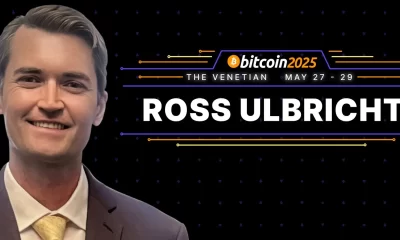

Ross Ulbricht To Speak At Bitcoin 2025


Solana Eyes $200 Target As It Gains Momentum – Recovery Could Mirror 3-Month Downtrend


BTC-denominated insurance firm meanwhile secures $40m in VC funding


‘You Want To Own the Most Hated Thing’ – Arthur Hayes Says Ethereum Set To Outrun Solana As Memecoin Craze Fades


Crypto Braces for a Hidden $4.5 Trillion Catalyst for Bitcoin, Ethereum, Cardano, XRP Price
Law and Order
Block Agrees to $40M NYDFS Penalty Over Lackluster Compliance Program
Published
7 hours agoon
April 10, 2025By
admin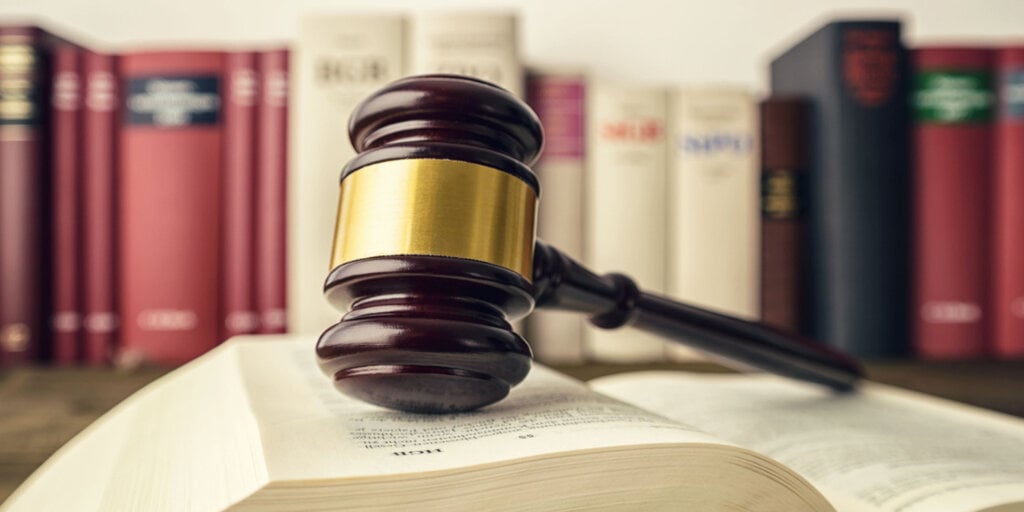
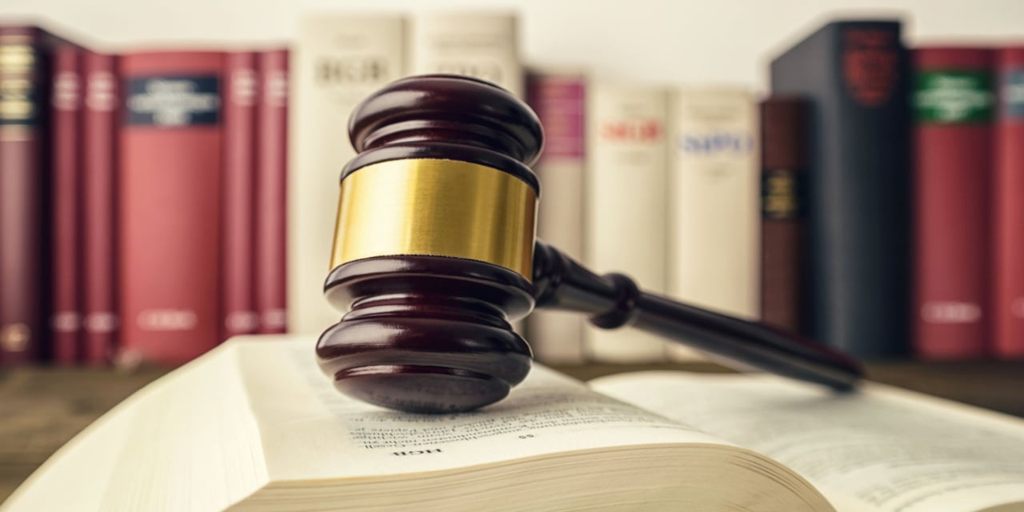
Block, Inc. has agreed to a $40 million settlement with the New York Department of Financial Services (NYDFS) for “significant failures” in its anti-money laundering compliance program, the Wall Street regulator announced on Thursday.
The company led by Jack Dorsey has agreed to retain an independent monitor after violating the Department’s money transmitter and virtual currency rules, the NYDFS added.
The NYDFS found that Block’s company had “inadequate customer due diligence” and failed to implement systems sufficient for preventing money laundering and illicit activity.
Block’s services were “vulnerable to criminal exploitation,” the NYDFS said, arguing that Block’s “lax treatment” of Bitcoin transactions allowed largely anonymous transactions to evade scrutiny.
“Compliance functions must keep pace with company growth or expansion,” NYDFS Superintendent Adrienne A. Harris said in a statement.
With its so-called BitLicense, Block’s Cash App had been regulated under the NYDFS as a virtual currency business since 2018.
Last year, Cash App ended its support for free peer-to-peer (P2P) Bitcoin payments, while leaning into other cryptocurrency services that users have gravitated toward.
Edited by James Rubin
Daily Debrief Newsletter
Start every day with the top news stories right now, plus original features, a podcast, videos and more.
Source link
Law and Order
OpenAI Countersues Elon Musk, Accuses Billionaire of ‘Bad-Faith Tactics’
Published
15 hours agoon
April 10, 2025By
admin

OpenAI says Elon Musk didn’t just leave the company; he tried to take it over, and the AI research giant says it has the emails to prove it.
In a newly filed countersuit, OpenAI accuses Tesla CEO Elon Musk of attempting a hostile takeover of the company he helped found, using what it called “bad-faith tactics” and a “self-serving narrative.”
OpenAI seeks to block Elon Musk’s alleged campaign of harassment and disruption, centered on a sham $97 billion takeover bid, while seeking compensatory and punitive damages to be determined at a possible trial, along with injunctive relief to prevent further interference.
Elon’s nonstop actions against us are just bad-faith tactics to slow down OpenAI and seize control of the leading AI innovations for his personal benefit. Today, we counter-sued to stop him.
— OpenAI Newsroom (@OpenAINewsroom) April 9, 2025
“These antics are just history on repeat—Elon being all about Elon,” OpenAI’s official newsroom wrote in a scalding post on X as it shared internal emails showing Musk pushing to convert OpenAI into a for-profit entity.
While Musk has consistently argued that OpenAI strayed from its original nonprofit mission, OpenAI alleges Musk himself was the first to push for a structural overhaul, so long as he was in charge.
As shown in the emails, in November 2015, Musk began questioning OpenAI’s structure in an email to CEO Sam Altman, writing that a “standard C corp with a parallel nonprofit” would likely align incentives better.
Decrypt has yet to independently verify the emails put forth by OpenAI. Representatives for Musk’s companies, Tesla and SpaceX, did not immediately respond to Decrypt’s request for comment.
For-profit necessity
In June and July 2017, as OpenAI’s need for compute scaled with its Dota 2 experiments, Musk allegedly encouraged expansion, writing, “Let’s figure out the least expensive way to ensure compute power is not a constraint.”
And that summer, discussions shifted. On July 13, 2017, Musk allegedly agreed a for-profit model might be necessary. Days later, he warned that China’s AI ambitions were another reason to “change course.”
OpenAI claims that in September 2017, Musk made his move, pushing for “initial control” over OpenAI’s board in exchange for capital and demanding to be CEO.
Emails from that month show him proposing a structure where he’d appoint four out of seven board seats. “I would unequivocally have initial control of the company,” he allegedly wrote.
OpenAI alleges Musk also directed his team to incorporate a for-profit shell company, Open Artificial Intelligence Technologies, Inc., with plans to rehouse OpenAI’s IP under it.
Pushback
But OpenAI pushed back. In a candid message, co-founders warned that Musk’s structure risked creating an “AGI dictatorship.”
They rejected the terms. Musk’s response: “Discussions are over. I will no longer fund OpenAI.”
In January 2018, Musk allegedly proposed spinning OpenAI into Tesla, saying it was the only way to raise the billions needed. “OpenAI is on a path of certain failure relative to Google,” he wrote.
According to OpenAI, the team declined again, unwilling to become a Tesla subsidiary. By February 2018, Musk resigned as co-chair and parted ways with OpenAI.
Years later, he has now returned, and this time through the courts.
In March, Musk’s lawsuit against OpenAI sought to block its transition to a capped-profit structure. A U.S. judge denied the injunction but agreed to an expedited trial, set for fall 2025.
OpenAI had previously released Musk’s emails earlier last year in response to the lawsuit, painting a picture of a founder who, despite his public stance, was already advocating for profit, exclusivity, and consolidation, years before filing suit.
Amid the chaos, Musk has founded a rival AI startup, xAI, which last month merged with X in an all-stock deal valuing xAI at $80 billion.
OpenAI, for its part, announced a $40 billion funding round led by SoftBank, pushing its valuation to $300 billion. That’s nearly four times the valuation tied to Musk’s xAI startup.
“We’re getting ready to build the best-equipped nonprofit the world has ever seen,” OpenAI said in its countersuit. “The idea that we abandoned the mission is false. Elon’s own emails make that clear.”
Edited by Sebastian Sinclair
Generally Intelligent Newsletter
A weekly AI journey narrated by Gen, a generative AI model.
Source link
Law and Order
US Lawmakers Clash Over Trump Meme Coin Launch, Crypto Regulation
Published
23 hours agoon
April 9, 2025By
admin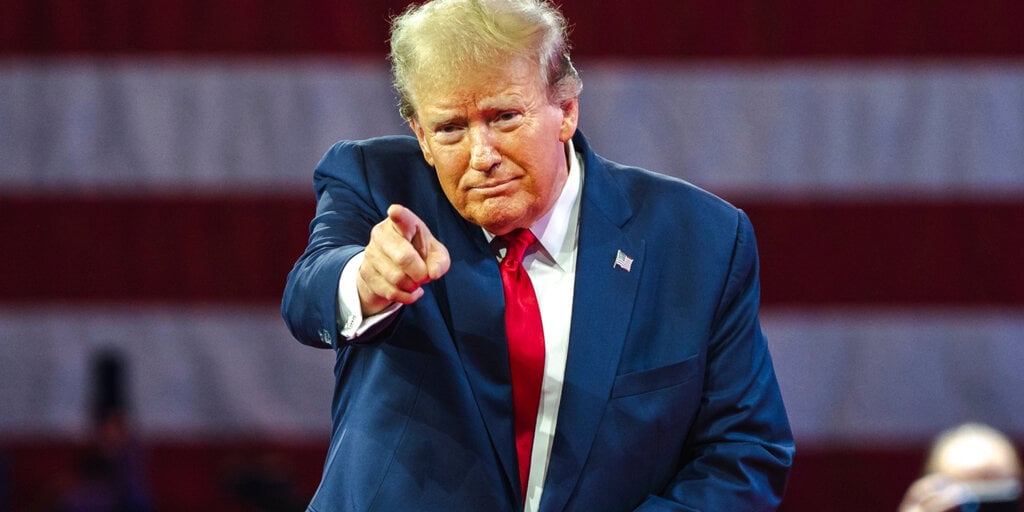
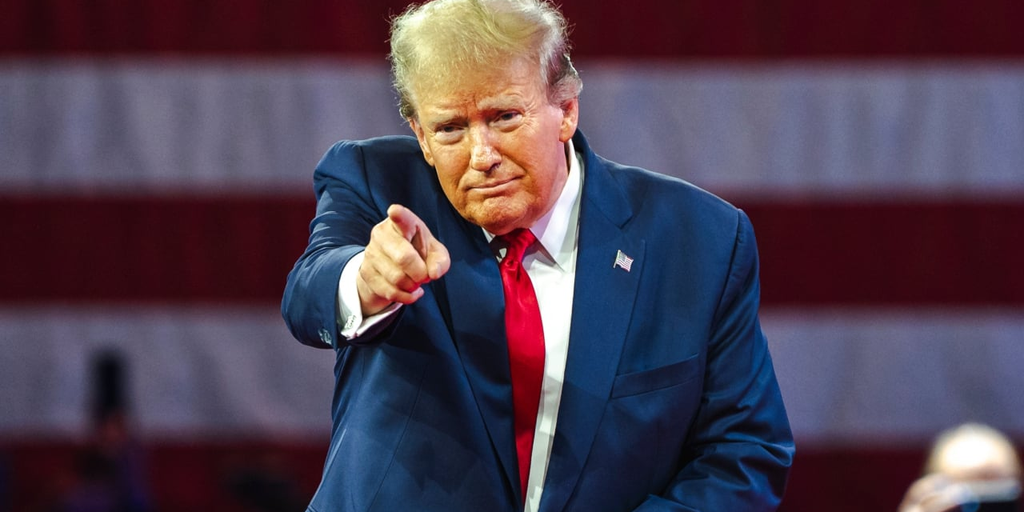
Crypto industry advisers were keen to push ahead with legislation at a meeting with lawmakers Wednesday but shied away from one topic: President Donald Trump’s meme coin launch and digital asset ventures.
All agreed that regulating the fast-moving space was necessary but when pressed at a U.S. House Financial Services Committee on Trump’s potential conflicts of interest, speakers were quick to skirt the issue.
The hearing aimed to clarify regulatory and other issues related to the burgeoning digital assets industry. But questioning from Democratic and more pro-crypto Republicans reflected the differing attitudes toward crypto between the two major U.S. parties. Democrats took particular issue with Trump’s personal crypto initiatives, which have raised concerns about his using his position to advance his business goals.
Ahead of his inauguration, President Trump launched a meme token—Official Trump—which shot up in value before crashing hard.
“As Americans wonder how they will afford retirement or afford groceries, Trump is sitting pretty,” Maxine Waters (D-Calif.) said at Wednesday’s meeting.
“We need to stop Trump before he takes any steps further on crypto legislation,” she continued, claiming President Trump had doubled his wealth via various crypto ventures over the past year.
Alexandra Thornton, senior director of financial regulation at the Center for American Progress, said she could not comment on the President’s business ventures but added that fraud still existed in the space.
Rep. Stephen Lynch (D-Mass.) asked Rodrigo Seira, special counsel at Cooley LLP, if there was a problem with President Trump’s meme token launch and the asset’s subsequent price crash.
Seira refused to comment on any specific project.
Lynch added: “It is also notable that under the Trump administration, the SEC has dropped almost every lawsuit against some of the worst offenders in the crypto industry.”
Trump’s Solana-based token, TRUMP, is now nearly 89% down from its January high.
Some members of the Democratic Party have argued that President Trump is too involved in the crypto space and is unfairly making money.
Lawmakers are currently deciding how best to move forward with regulating stablecoins: digital tokens pegged to the U.S. dollar and other non-volatile assets.
Trump campaigned as a pro-crypto Republican to help the digital asset space, and received funding from crypto entrepreneurs and Silicon Valley bigwigs.
The president has backed a DeFi project, and the Trump family has launched a stablecoin, the World Liberty Financial USD1 token.
Since Trump took office, regulators have taken a different approach to the Securities and Exchange Commission’s prior tactics of hitting major crypto companies with lawsuits.
Financial watchdogs have scrapped cases against Kraken, Coinbase, Robinhood, and others.
The SEC has also launched a new task force under commissioner Hester Peirce, and rescinded its Staff Accounting Bulletin (SAB) No. 121, which required companies to record a liability and a corresponding asset for crypto assets held on behalf of users.
Critics, including Peirce, argued that the guidance added unnecessary complexity and created an uneven playing field for crypto platforms.
In February, the regulator said that meme coins and tokens did not fall within its jurisdiction.
Edited by James Rubin
Daily Debrief Newsletter
Start every day with the top news stories right now, plus original features, a podcast, videos and more.
Source link

Tokenized Gold Nears $2B Market Cap as Tariff Fears Spark Safe Haven Trade

Ross Ulbricht To Speak At Bitcoin 2025

Solana Eyes $200 Target As It Gains Momentum – Recovery Could Mirror 3-Month Downtrend

BTC-denominated insurance firm meanwhile secures $40m in VC funding

‘You Want To Own the Most Hated Thing’ – Arthur Hayes Says Ethereum Set To Outrun Solana As Memecoin Craze Fades

Crypto Braces for a Hidden $4.5 Trillion Catalyst for Bitcoin, Ethereum, Cardano, XRP Price

Block Agrees to $40M NYDFS Penalty Over Lackluster Compliance Program

Top Bitcoin miners produced nearly $800M of BTC in Q1 2025

Tariffs, Trade Tensions May Be Positive for Bitcoin (BTC) Adoption in Medium Term: Grayscale

The U.S. Tariff War With China Is Good For Bitcoin Mining

Dogecoin Bull Div Plays Out, Analyst Maps Next Price Targets

Web3 search engine can reshape the internet’s future

Billionaire Ray Dalio Says He’s ‘Very Concerned’ About Trump Tariffs, Predicts Worldwide Economic Slowdown

Top 4 Altcoins to Sell Before US-China Trade War Extends Beyond 125% Tariffs

OpenAI Countersues Elon Musk, Accuses Billionaire of ‘Bad-Faith Tactics’

Arthur Hayes, Murad’s Prediction For Meme Coins, AI & DeFi Coins For 2025

Expert Sees Bitcoin Dipping To $50K While Bullish Signs Persist

Aptos Leverages Chainlink To Enhance Scalability and Data Access

Bitcoin Could Rally to $80,000 on the Eve of US Elections

Crypto’s Big Trump Gamble Is Risky

Sonic Now ‘Golden Standard’ of Layer-2s After Scaling Transactions to 16,000+ per Second, Says Andre Cronje

Institutional Investors Go All In on Crypto as 57% Plan to Boost Allocations as Bull Run Heats Up, Sygnum Survey Reveals

Ripple-SEC Case Ends, But These 3 Rivals Could Jump 500x

Has The Bitcoin Price Already Peaked?

A16z-backed Espresso announces mainnet launch of core product

Xmas Altcoin Rally Insights by BNM Agent I

The Future of Bitcoin: Scaling, Institutional Adoption, and Strategic Reserves with Rich Rines

Blockchain groups challenge new broker reporting rule

I’m Grateful for Trump’s Embrace of Bitcoin

Trump’s Coin Is About As Revolutionary As OneCoin
Trending

 24/7 Cryptocurrency News5 months ago
24/7 Cryptocurrency News5 months agoArthur Hayes, Murad’s Prediction For Meme Coins, AI & DeFi Coins For 2025

 Bitcoin3 months ago
Bitcoin3 months agoExpert Sees Bitcoin Dipping To $50K While Bullish Signs Persist

 24/7 Cryptocurrency News3 months ago
24/7 Cryptocurrency News3 months agoAptos Leverages Chainlink To Enhance Scalability and Data Access

 Bitcoin5 months ago
Bitcoin5 months agoBitcoin Could Rally to $80,000 on the Eve of US Elections

 Opinion5 months ago
Opinion5 months agoCrypto’s Big Trump Gamble Is Risky

 Altcoins2 months ago
Altcoins2 months agoSonic Now ‘Golden Standard’ of Layer-2s After Scaling Transactions to 16,000+ per Second, Says Andre Cronje

 Bitcoin5 months ago
Bitcoin5 months agoInstitutional Investors Go All In on Crypto as 57% Plan to Boost Allocations as Bull Run Heats Up, Sygnum Survey Reveals

 Price analysis5 months ago
Price analysis5 months agoRipple-SEC Case Ends, But These 3 Rivals Could Jump 500x


